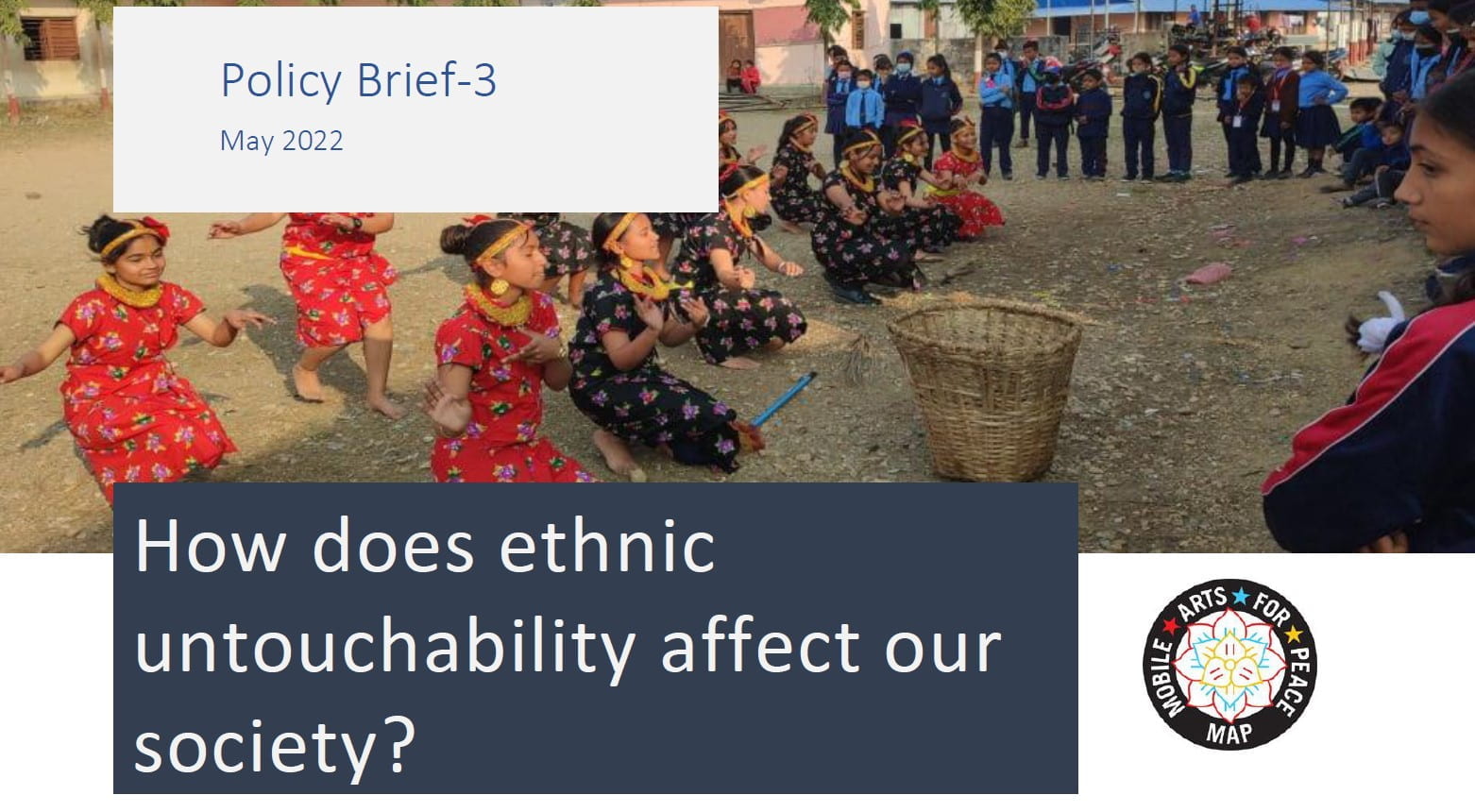[et_pb_section fb_built=”1″ _builder_version=”4.16″ global_colors_info=”{}”][et_pb_row _builder_version=”4.16″ background_size=”initial” background_position=”top_left” background_repeat=”repeat” global_colors_info=”{}”][et_pb_column type=”4_4″ _builder_version=”4.16″ custom_padding=”|||” global_colors_info=”{}” custom_padding__hover=”|||”][et_pb_text _builder_version=”4.16″ _module_preset=”default” custom_padding=”||2px|||” global_colors_info=”{}”]
Despite legal protections both in the UN Convention of Children’s Rights and in the Constitution of Nepal caste based discrimination is still a prominent feature of Nepali society. People who are considered of low caste known as ‘Dalits’ or ‘untouchables’ are considered lesser human beings. They often face marginalization, social and economic exclusion, an d segregation in housing, with women and girls particularly vulnerable to different forms of abuse. Members of the Divyasewa Child club of Janajyoti Secondary School, Makwanur, decided to explore the issues surrounding caste based discrimination, using ar t based methods to understand different perspectives. This policy brief captures their findings and key policy recommendations.
[/et_pb_text][et_pb_code _builder_version=”4.17.6″ _module_preset=”default” hover_enabled=”0″ global_colors_info=”{}” sticky_enabled=”0″]
